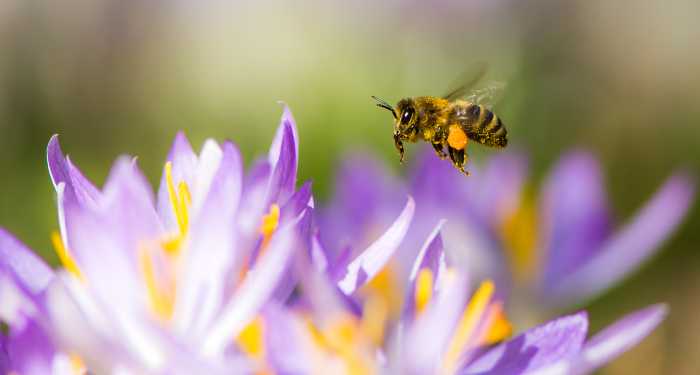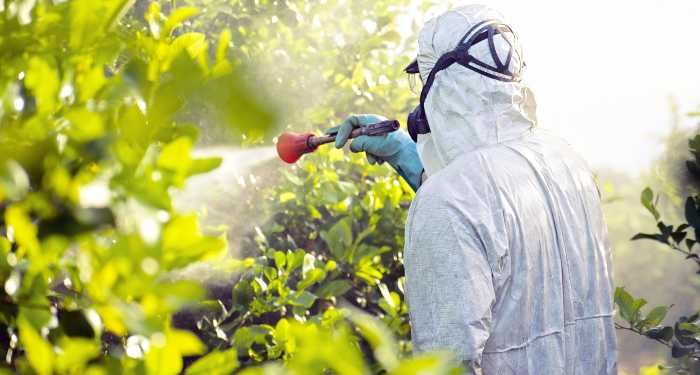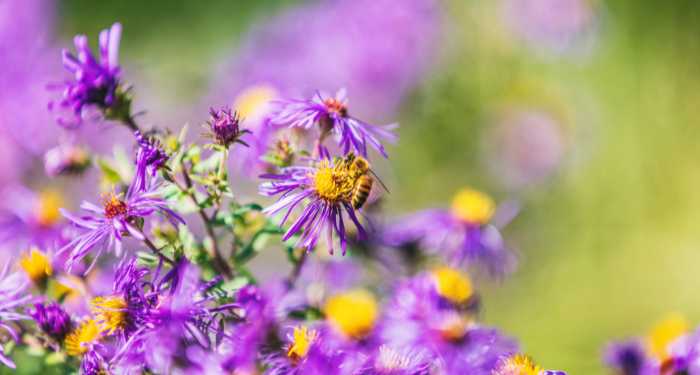Save the Bees: Celebrating National Honey Bee Day by Understanding Threats and How You Can Help
Posted July 24, 2023
National Honey Bee Day is an awareness day celebrated annually on the third Saturday in August. On this day, beekeepers, beekeeping clubs, associations, and honey bee enthusiasts from across the United States honor honey bees and recognize their critical contribution to our everyday lives, aiming to protect this essential species.
Beyond producing the sweet nectar we know as honey, these hard-working insects play a crucial role in pollinating our plants, contributing to the biodiversity and beauty of our surroundings. According to the USDA, honey bees pollinate $15 billion worth of crops in the United States each year, including more than 130 types of fruit, nuts, and vegetables. Sadly, these invaluable members of our ecosystem are under threat, and it’s up to us to help protect them.
4 Main Threats to Honey Bees
1. Pesticides
Pesticides meant to protect crops from harmful insects can unintentionally harm bees. These chemicals can contaminate the nectar and pollen that bees feed on, posing a potentially lethal threat to these beneficial insects.
2. Habitat Loss
The rapid pace of urban development and intensive farming practices often lead to the loss of diverse habitats and wildflowers. The resulting decrease in food sources and nesting places can seriously impact bee populations.
3. Climate Change
Climate change disrupts the harmony of the ecosystem, altering the timing of flower blooming and potentially leaving bees with insufficient food sources during crucial times. Extreme weather events, like storms or heat waves, can also pose significant threats to bees.
4. Disease and Parasites
Diseases and parasites, such as the Varroa mite and Colony Collapse Disorder, can devastate bee colonies, leading to significant population declines.
5 Way You Can Help Save the Honey Bees

1. Create a Bee-Friendly Environment
Support bees by creating an inviting environment in your garden. Plant a variety of flowering plants that bloom at different times of the year to provide bees with a consistent food source. Raised garden beds can be a practical and aesthetically pleasing way to achieve this.
2. Avoid Harmful Pesticides
Rather than using chemical pesticides in your garden, consider organic or natural alternatives instead. These can help you maintain a vibrant garden without causing harm to beneficial insects like bees.
3. Start Composting
Composting your kitchen and yard waste is not only beneficial for the environment, but it also enriches your soil naturally. Healthy soil leads to flourishing plants and flowers, providing bees with the food they need to thrive.
4. Support Local Beekeepers
By purchasing locally produced honey, you help support beekeepers committed to maintaining and increasing bee populations. If you’re interested, why not consider becoming a backyard beekeeper yourself?
5. Spread the Word
Finally, use National Honey Bee Day as an opportunity to educate others about the importance of honey bees and the threats they face. The more people understand and appreciate these tiny workers, the more they can contribute to the solutions. On social media, use hashtags like #SaveTheBees and #NationalHoneyBeeDay to help spread the message.
As we celebrate National Honey Bee Day, let’s remember that our lives heavily depend on these little pollinators. By making simple changes in our homes and gardens, we can help ensure a bright, blooming future for us all. Happy National Honey Bee Day, and happy gardening!

